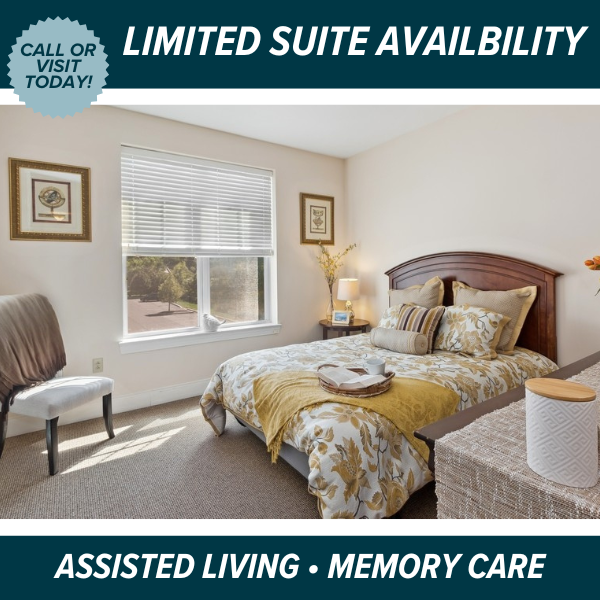Caring for a parent with dementia is both an act of love and a serious responsibility. While many families do their best to manage care at home, dementia often brings unpredictable changes—wandering, sleeplessness, or agitation—that can feel overwhelming without professional help. It’s completely natural, and you aren’t alone.
Memory care offers professional support tailored to help your loved one in their everyday life. No matter where your loved one is on their journey, memory care can help maintain their dignity and respect. It’s a lifestyle that focuses on treating your loved one as the unique individual they are.
What Is Dementia?
Dementia is an umbrella term for a range of cognitive disorders. These progressive conditions damage brain cells over time. Eventually, dementia impairs a person’s everyday abilities, leading to dependence on around-the-clock care. Because of this, dementia is often called “memory impairment.”
There are several types of dementia, but the common types include:
- Alzheimer’s disease
- Frontotemporal dementia
- Lewy body dementia
- Vascular dementia
These can occur on their own or in a combination called mixed dementia. However, regardless of the type, dementia progressively worsens and affects almost all parts of a person’s life.
The Early Signs of Dementia
When dementia symptoms begin developing, it’s easy to mistake them for age-related confusion. However, they eventually reach a point where your loved one struggles with familiar tasks.
Keep an eye out for:
- Memory loss that disrupts daily life
- Difficulty completing familiar tasks
- Problems with communication
- Disorientation to time and place
- Decreased or poor judgment
- Changes in mood or behavior
If you notice these, it’s time to consider professional support. And fortunately, memory care can help.
The Emotional Impact on Caregivers
Caring for a parent with dementia can be both rewarding and emotionally draining. Many caregivers experience feelings of guilt for needing help, frustration when routines are disrupted, or quiet sadness as they watch their loved one’s memory and personality change over time. These emotions often build alongside the daily demands of caregiving, leading to stress and fatigue.
Over time, this stress can result in caregiver burnout, marked by exhaustion, irritability, and a sense of isolation. Recognizing these feelings early and seeking support—through memory care programs, respite stays, or support groups—can help caregivers maintain their own well-being while continuing to be a loving, present source of support for their parent.
What Is Memory Care?
Memory care is a lifestyle focused on supporting older adults living with dementia. Unlike other types of senior living, memory care is tailored entirely toward those living with cognitive impairments.
In memory care, your loved one lives in a home-style community designed to treat them as a unique individual. Every aspect of the community supports your loved one throughout their journey. There are:
- Teams of caregivers with extensive experience in supporting older adults living with cognitive decline
- Security and safety features designed to counteract the common challenges posed by dementia
- Therapy programs and stimulating activities to maintain cognitive function and abilities
- Care plans that adapt to the changing needs of your loved one so they receive proper support.
- Opportunities for social engagement and meaningful interactions to foster a sense of community
It’s a multi-faceted approach built around making a difference. It offers your loved one tailored support that addresses the root cause of their symptoms. Meanwhile, it also offers your family peace of mind, knowing that your loved one is in a place that understands their journey.
When Is It Time for Memory Care?
Deciding when it’s time for memory care is a personal and sometimes difficult decision. Often, families find themselves overwhelmed when dementia is a factor. Forgetfulness, confusion, or even wandering can be detrimental.

However, recognizing the signs that your loved one needs professional help makes a difference. Try to look out for:
- Difficulty with personal hygiene and self-care routines
- Frequent episodes of agitation or anxiety
- Persistent feelings of loneliness or isolation
- Worsening sleep patterns or daytime sleepiness
- A noticeable decline in physical health or unexplained weight loss
These signs all indicate that your loved one is struggling in their everyday life. If they sound familiar, it’s time to think about memory care.
It’s important to note that the transition to memory care isn’t about giving up. It’s about trying a new model of support tailored to your loved one’s unique situation. Memory care is a structured, safe, and professional way to get your loved one the care they deserve.
What Are The Benefits of Memory Care for Your Parent?
Memory care is designed not just to manage dementia’s challenges but to create opportunities for joy and connection:
- Specialized activities: Art, music, and reminiscence therapy help spark positive memories and lift mood.
- Safe environment: Layouts minimize confusion, reduce fall risks, and encourage safe exploration.
- Consistent routines: Predictable schedules help reduce anxiety and agitation.
- Professional oversight: Medication management, health monitoring, and tailored care plans adjust as needs change.
What Are The Benefits for You as a Family Caregiver?
- Peace of mind: Knowing your parent is in a secure, supportive environment.
- More quality time: You can focus on meaningful visits instead of daily caregiving logistics.
- Guidance & education: Many memory-care teams coach families on how to communicate effectively with someone who has dementia.
How to Choose the Right Memory Care Facility
Choosing the right memory care community is an essential step. Each community has its own strengths and benefits, so you’ll want to select a community that aligns with your loved one’s needs, desires, and lifestyle.
Make sure you consider:
- Proximity to family and friends, which affects how easy it is to plan visits
- The training and qualifications of the caregiving staff
- The structure and variety of activities and programs
- The overall environment and atmosphere of the community
- The flexibility and adaptability of care plans as conditions progress
You can visit potential communities in person. This lets you see exactly what life is like in the environment. By considering every factor, you can make an informed decision and find the right community for your loved one.
Frequently Asked Questions About Memory Care
Is memory care the same as assisted living?
No. Assisted living provides assistance with daily tasks like meals and medications, while memory care provides specialized support for individuals living with cognitive challenges such as dementia or Alzheimer’s.
How do I know it’s time for memory care?
It’s often time when safety becomes a concern. If you your parent forgets to take medications, wanders, or needs help with hygiene and meals, it may be time for memory care.
Can my parent still enjoy hobbies and social activities?
Yes! Memory care programs include group activities, music, crafts, and personalized therapies designed to keep residents active and engaged.
The Right Way to Help
Choosing memory care for a parent with dementia is an excellent decision. This way, you’re getting support for your loved one—and yourself—in a way that matters. And here at The Bridges of Warwick, we’re ready to step in and help. Schedule a visit with us today, or contact our community for more information! We’re here for your family.









